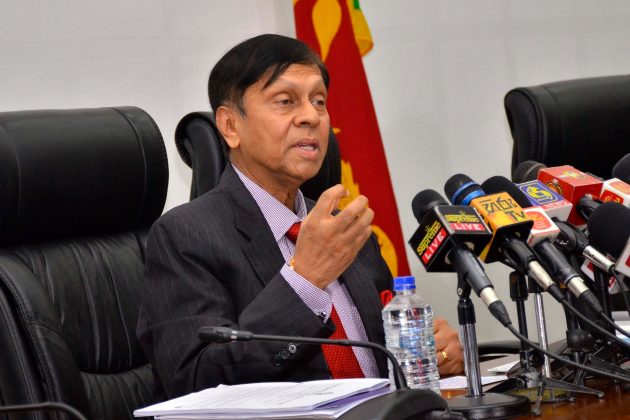State-imposed temporary import restrictions, to save on foreign exchange, are to be extended for another six months commencing from January 2, informed official sources said. The earlier 6-month period ends on January 2.
The relevant gazette notification will be issued by the Finance Ministry sometime this week on the directions of the President’s Secretary Dr. P.B. Jayasundera.
He has already announced only some ‘big-ticket items’ such as motor vehicles are prohibited from being imported for a further period. Earlier it was planned to extend the restrictions for only three months but the decision was reversed to six months on Thursday evening, the sources said.
Import restrictions will further slowdown Sri Lanka’s battered economic growth prospects hurting businesses that rely on imports, several economic experts said.
They added that it would affect production and jack up the price of goods while allowing domestic production chains to sustain themselves disrespecting consumer choice.
In the very short run, Sri Lanka has no other alternative other than going for import controls, eminent economist Dr. W A Wijewardena said adding that the country ideally should not exceed this ‘short’ period of controls..
Sri Lanka’s transformation into a production-oriented market economy with import restrictions will be leading the country towards the emergence of a separate domestic capitalist class.
According to Central Bank statistics, imported consumer goods amount only to 19.8 per cent of total imports, while 57 per cent of imports are intermediate goods for production.
Therefore local manufacturers are already starting to experience the adverse effects of the import controls.
“These import restrictions are also exerting an impact on the consumer durables market,” Singer Group CEO Mahesh Wijewardene told shareholders in the company’s latest annual report.
Several building material manufacturers in steel, tiles, aluminum are exploiting the people with overpriced goods. The main problem now is that while the people are paying high prices under cover of the tax and import restrictions, the money is not going to the government coffers but to the pockets of the few selected businessmen with ruling party connections, economists said.
The tax on readymade garment imports will be increased from April in addition to existing import restrictions on textiles, official sources said.
Economists said that several protectionist measures in the hope of saving foreign exchange were irrational in the current global and regional economic conditions.
This is because the market monopoly creation instead of market competition is misguided protectionist policy.
(LIN)

